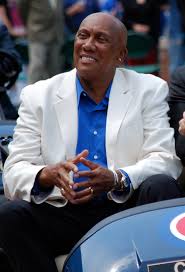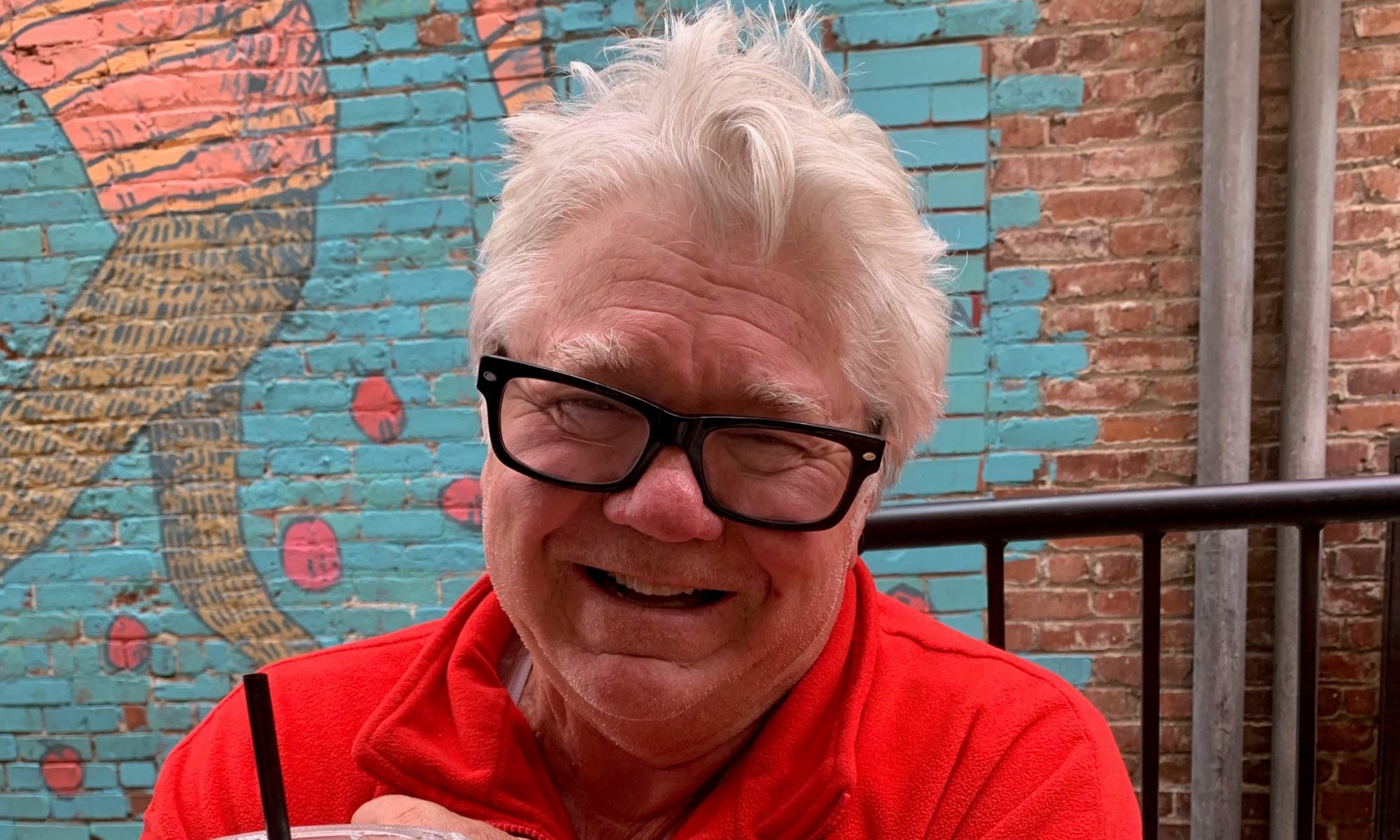This is part of a series of mini-Redlands Connections. This is Part 3 of the series, Quick Visits. Magic Johnson and John Wooden showed up at the University of Redlands as part of a Convocation Series. Future NFL Hall of Fame coach, former NBA player John Block, legendary high school coach Willie West showed up. There are others. Cazzie Russell, for instance, came to Redlands with an NCAA Division III basketball team from Savannah, Ga. Russell, out of Michigan, was the NBA’s overall No. 1 draft pick by the New York Knicks in 1966.
Today’s feature: Former Chicago Cubs’ pitcher Ferguson Jenkins.
Here’s where being a media member has its advantages:
Hall of Fame pitcher Ferguson Jenkins had appeared in Redlands to conduct a youth clinic at Community Field and, perhaps, sign a few autographs.
Chicago Cubs’ fans were plentiful throughout the country. One notable such fan, a veterinarian who lived in Redlands, could recite all the Cubs’ doctrine from those Jenkins years.
Here are the guys that fans instantly thought about when recalling those Cubs’ teams from the 1960s: Ron Santo, Billy Williams and Ernie Banks were the headliners. Jenkins, of course, was the ace pitcher. Leo Durocher was Cubs’ manager, a fact that wasn’t enthusiastically accepted by the local vet.
“Durocher ruined Jenkins’ career,” said the vet. “He used him too much. Ruined his arm.”
He was adamant. Mind couldn’t be changed on that.

This, of course, was years later — after baseball had starting dedicating a full core of relief pitchers to save games. In Jenkins’ days, legendary pitchers like Bob Gibson, Juan Marichal, Mickey Lolich, Don Drysdale, Tom Seaver, Jim Palmer, Catfish Hunter, Vida Blue, you name it, would pitch 300-plus innings each year.
Bullpens weren’t quite as deep.
So here was Jenkins in my sight line: “Tell me about Leo Durocher.”
Jenkins took it from there.
“Leo helped make my career. If it weren’t for him … I’ll tell you, he taught me a lot. I owe him a lot. I owe a lot of my career to him.”
Under Durocher, Jenkins became one of baseball’s top hurlers.
“When I got traded to the Cubs,” he said, referring to the 1966 deal in which Philadelphia traded away a future Hall of Famer to the Cubs, “we were the worst team in baseball.”
Durocher had just been named Cubs’ manager. Jenkins, under Durocher, won 20 games in six straight seasons — all seasons that Durocher had managed him, incidentally.
“He worked you, no question about that,” said Jenkins.
The Cubs never won a pennant, a division championship, or made it to the World Series.
“Some of those years we came to spring training,” said Jenkins, “and we knew we’d have a chance to win … because of Leo. He turned that team around in Chicago.”
Where was that vet, that so-called Cubs’ fan? He needed to be listening to all this.
The guy who’d been teammates with Ruth & Gehrig, turned the Brooklyn Dodgers into pennant winners, managed Jackie Robinson and Willie Mays, among others, Durocher was, perhaps, baseball’s greatest connection to multiple generations.
“I never had any trouble with Leo,” said Jenkins. “I know what people say about him, what they try to insinuate.”
If there was a criticism of Durocher from that 1969 season, said Jenkins, “it’s probably that he never gave our regular guys a break.”
It was Don Kessinger, Glenn Beckert, Billy Williams, Ron Santo, Ernie Banks, Jim Hickman, Randy Hundley and Don Young. The Cubs took second to the Miracle Mets.
Jenkins finished 21-15 with a 3.21 ERA over 311 1/3 innings that season.
I still have no idea how someone from Redlands had lured the fabulous Jenkins (284-226 over 19 seasons) to Community Field in the early 1990s. In reality, it was Redlands Baseball For Youth President Steve Chapman, a die-hard Cubs’ fan, who sent a white limousine to bring Jenkins to the ballpark.
It was almost an afterthought that Julio Cruz, a onetime Redlands High player, and Rudy Law, a former Dodger and White Sox player, also showed up. Infield play, outfield play, a little hitting — plus pitching.
Ex-Pirates’ pitcher Dock Ellis was also present. Ellis, it’s likely remembered, is the pitcher who surrendered the tape measure home run hit by Reggie Jackson out of Tiger Stadium at the 1971 All-Star game.
Jenkins, incidentally, was one of just four N.L. pitchers in that 6-4 loss to the A.L. Giants’ pitcher Juan Marichal pitched in his final mid-summer classic and so did Houston’s Don Wilson.
Imagine, two of the N.L.’s four all-star pitchers — Ellis and Jenkins — had shown up in Redlands a couple decades later.
Jenkins had arrived at Community Field in that white limo. Dressed in his Cubs’ uniform. Showed kids his style of pitching.
“Show ’em your wallet,” he said, demonstrating his high-leg kick, twisting his torso with his left buttock toward the hitter, “and let it fly.”
That’s how a Hall of Famer did it.
Fans might not remember this, Jenkins said, “but Leo converted me into a starting pitcher. I’d been a reliever. He turned my career around. I became a Hall of Famer.”
Jenkins left Redlands like he’d arrived — in that white limo.

what a great insight by mr brown showing us the behind the scenes of fergie and leo.jimmy boy.